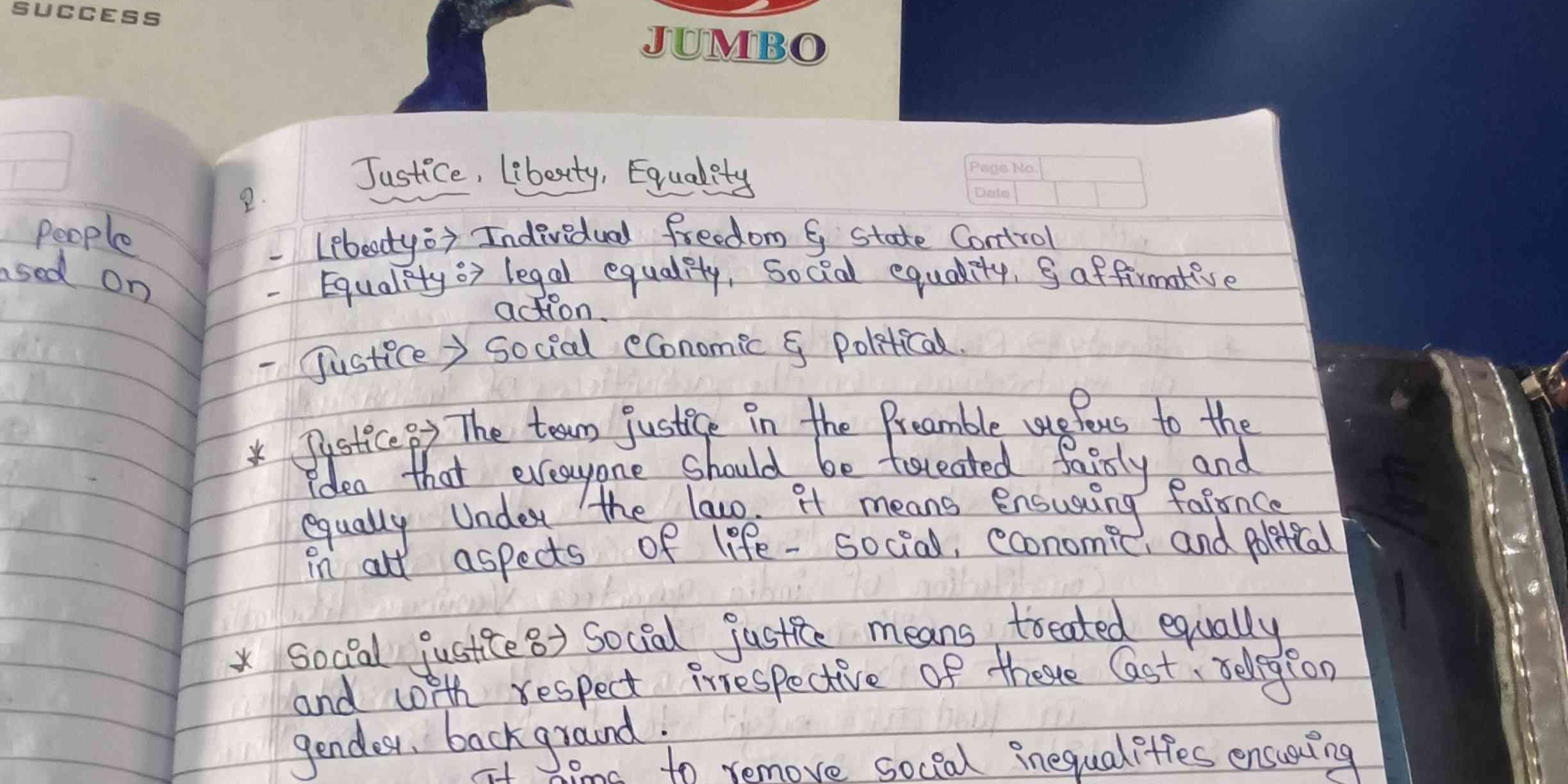What do justice, liberty, and equality mean in terms of individual freedom, legal equality, social equality, and justice?

Understand the Problem
The question is asking about the concepts of justice, liberty, and equality as they relate to individual freedom, legal equality, social equality, and justice. It provides definitions and contexts for these terms and looks to summarize their meanings and implications.
Answer
Justice: fairness; Liberty: freedom; Equality: equal treatment and opportunities.
Justice involves fairness in political, economic, and social aspects, ensuring equal treatment under law. Liberty refers to individual freedom from state control. Equality includes legal, social, and affirmative action dimensions, emphasizing equal treatment and opportunities.
Answer for screen readers
Justice involves fairness in political, economic, and social aspects, ensuring equal treatment under law. Liberty refers to individual freedom from state control. Equality includes legal, social, and affirmative action dimensions, emphasizing equal treatment and opportunities.
More Information
Justice ensures fairness and equal protection in societal systems, while liberty is about personal freedoms. Equality involves ensuring everyone has the same legal rights and social opportunities.
Tips
Confusing equality with identical treatment rather than equitable opportunities is a common mistake.
Sources
- Democratic Values — Liberty, Equality, Justice - USHistory.org - ushistory.org
- Principles and Virtues - Bill of Rights Institute - billofrightsinstitute.org
AI-generated content may contain errors. Please verify critical information